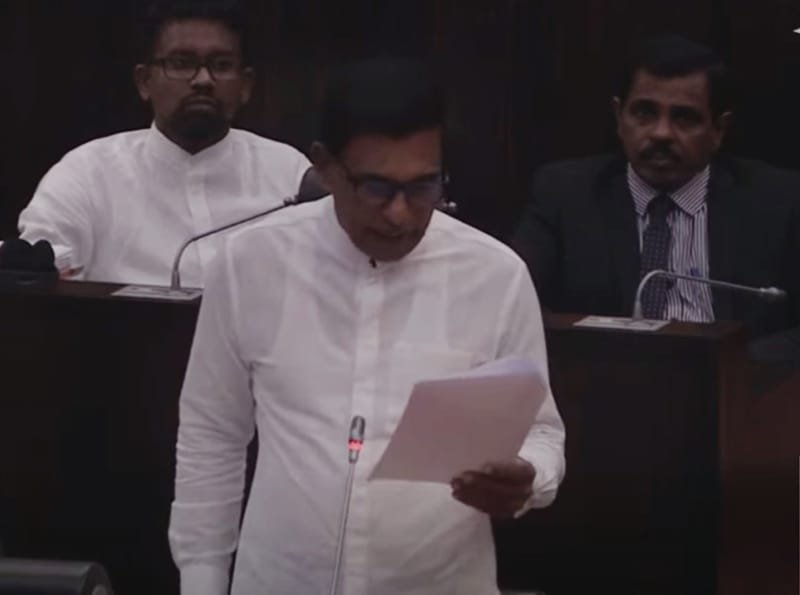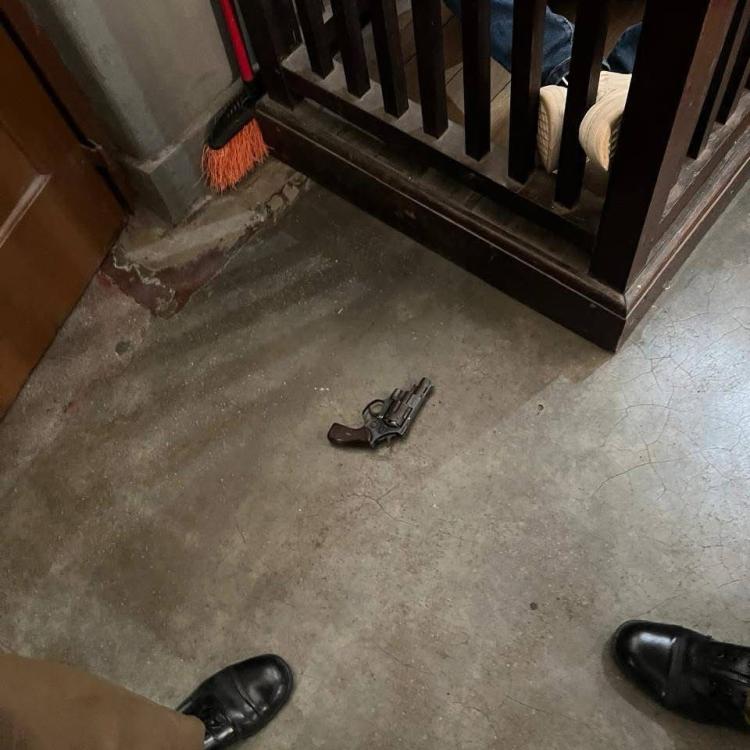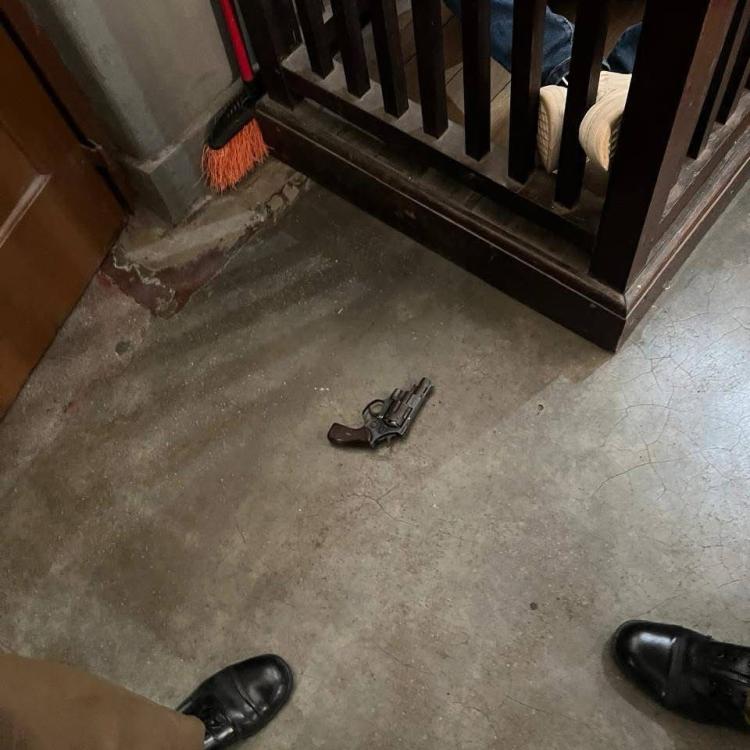.jpg)
Investigations into the assassination of alleged underworld figure “Ganemulla Sanjeewa” inside the Hulftsdorp Court Complex have revealed that the former soldier gunman and his female accomplice had surveilled the courthouse days before the attack and conducted a “dry run” of the execution.
According to police sources, the two suspects familiarised themselves with the layout, security measures, and entry and exit points before carrying out the targeted killing.

Speaking in Parliament on Friday, Sri Lanka’s Minister of Public Security and Parliamentary Affairs, Ananda Wijepala, said the gunman had enlisted in the Sri Lankan army in 2019 and served with the Commando Regiment before deserting. He was arrested by the Special Task Force (STF) in Puttalam just hours after the assassination.
His female accomplice, identified as Ishara Sewwandi, discreetly handed him a revolver, which had been concealed within a hollowed-out copy of the Code of Criminal Procedure.
The gunman fired multiple rounds at Sanjeewa at point-blank range before fleeing the scene through the court’s main gate amid the ensuing chaos.
Under interrogation the gunman, reported to have several names including Samindu Dilshan Piyamunga Kandanaarachchi and Mohamed Azman Sherifdeen, confessed that he had been promised Rs. 15 million to carry out the execution, but had only received an initial payment of Rs. 200,000. He was due to receive the remainder of the sum after successfully completing the hit and escaping to India.
Investigators from the Colombo Crimes Division (CCD) have linked Kandanaarachchi to several other contract killings, including a double homicide on Watarappala Road, Mount Lavinia, on 7 January 2025. His accomplice, Ishara Sewwandi, remains at large.
Sri Lanka is witnessing a surge in organised crime, targeted assassinations, and gang-related violence.
Sri Lankan president Anura Kumara Dissanayake recently admitted that underworld gangs have infiltrated state security institutions, exposing the deep-rooted entanglement between criminal networks and Sri Lanka’s law enforcement agencies.
“In the past, some of these criminal elements received political protection, but that support is no longer in place. Now, we are receiving critical intelligence, and investigations are already underway into these networks,” Dissanayake stated.
He also suggested that the recent spike in violence across the country might not solely be gang rivalries but could involve covert, politically connected forces orchestrating these events.
“There are ongoing investigations into the possibility that these incidents may be more than just clashes between gangs. We are exploring the theory that there may be external forces, perhaps working covertly, that are orchestrating these events,” he added.


